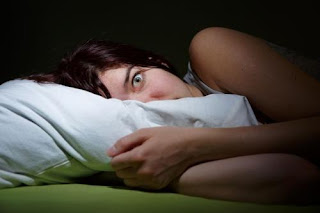Sleep paralysis is an unsettling experience that some people go through. It falls under the category of parasomnia, where individuals find themselves unable to move while experiencing hallucinations and sensations. These episodes, which typically last no than two minutes can be emotionally disturbing but thankfully don't cause any long term harm.
The phenomenon of sleep paralysis has been interpreted in ways across different cultures. In Inuit societies, its seen as an attack by malevolent shamans while certain Brazilian folklore connects it to a creature called a pisadeira. Interestingly its also associated with traumatic stress disorder and can often manifest as a replay of traumatic experiences.
From a perspective Western medicine classifies sleep paralysis as a subtype of narcolepsy. This indicates that there is a disruption in the brains control over sleep wake cycles. However sleep paralysis isn't limited to narcoleptics. Can occur during periods of jet lag, high levels of stress or insufficient sleep.
Sleep paralysis occurs when an individual transitions, out of the Rapid Eye Movement (REM) stage of sleep. This stage is characterized by brain activity and vivid dreaming. During REM sleep neurotransmitters are released that temporarily paralyze the body by inhibiting motor neurons in the cord. Upon awakening from this stage these neurotransmitters decrease while others are released to stimulate wakefulness in the brain and body.
Sleep paralysis occurs when the neuropeptides responsible for regulating our bodys movements fail to function. As a result our brain remains conscious while our body becomes temporarily paralyzed.
The exact reason behind the hallucinations experienced during sleep paralysis is still uncertain. However it is believed that the muscle paralysis in the chest and throat contributes to a sensation of heaviness or the presence of something
Studies indicate that sleep paralysis affects 8% of the global population with certain groups being more susceptible than others. These groups include college students, individuals of African descent with psychiatric conditions those with underlying mental health disorders shift workers and people with poor sleep habits.
Despite research efforts the precise causes of sleep paralysis and effective preventive measures remain elusive. Some recommended strategies, for reducing its occurrence include ensuring sleep maintaining a healthy diet engaging in regular exercise and managing stress levels.
In conclusion although sleep paralysis can be a terrifying experience it is a widespread phenomenon. Cultural interpretations and scientific explanations offer perspectives on this phenomenon; however finding definitive answers regarding its causes and prevention methods continues to be an ongoing exploration.
Links:
- https://ajp.psychiatryonline.org/doi/10.1176/appi.ajp-rj.2023.180401
- https://journals.sagepub.com/doi/abs/10.1177/1363461505050712
- https://www.frontiersin.org/articles/10.3389/fpsyg.2016.01294/full
- https://onlinelibrary.wiley.com/doi/abs/10.1002/da.20084
- https://www.utoronto.ca/news/how-sleep-paralysis-works
- https://www.sciencedirect.com/science/article/abs/pii/S1087079211000098
- https://journals.sagepub.com/doi/abs/10.1177/1363461505050715


Post a Comment